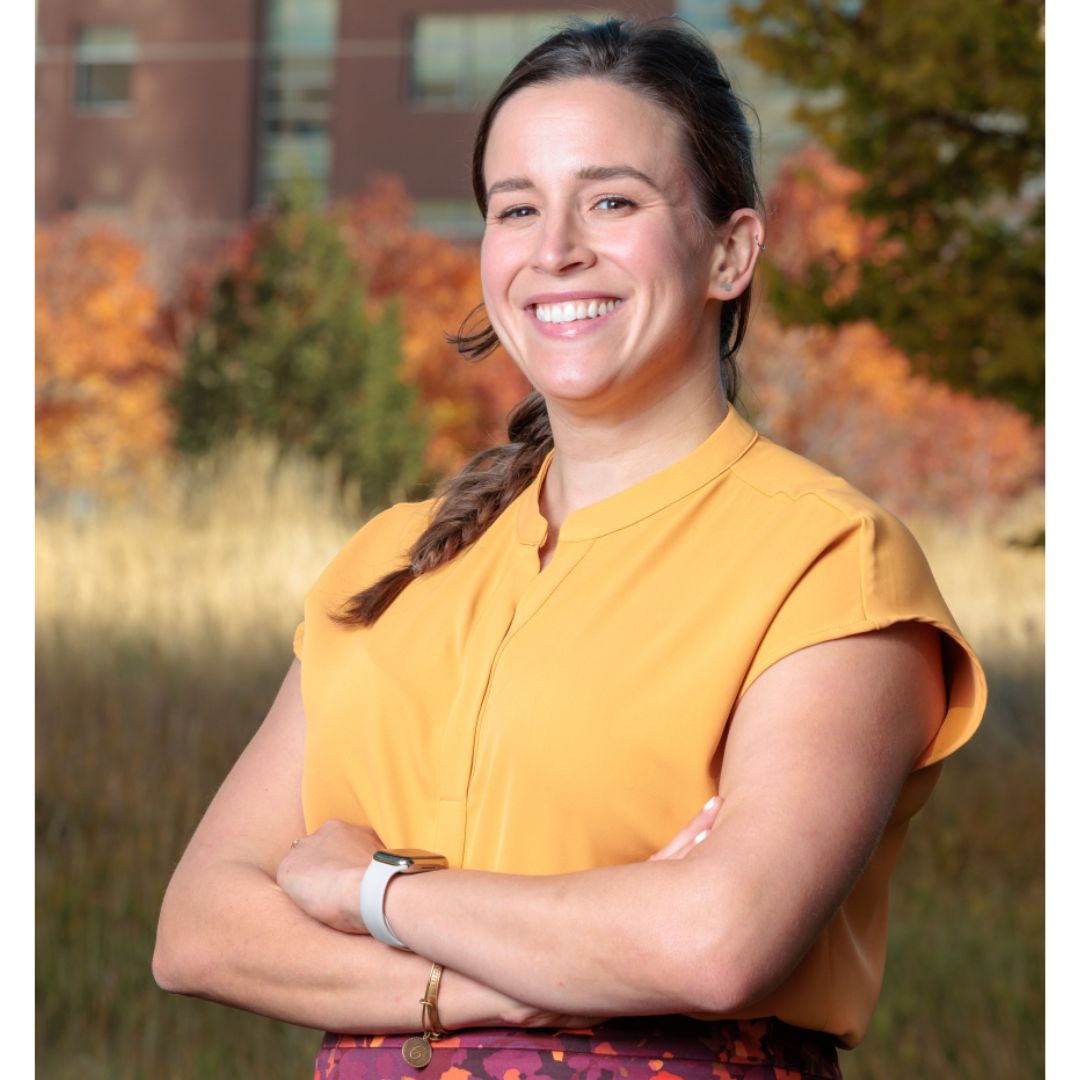One Woman’s Research is Another Woman’s Relief
Christina Metcalf is a Mother, Psychologist and Independent Researcher Driving the Conversation Around the Correlation Between Childhood Trauma and the Perimenopause Experience
Jan 11, 2024
Christina Metcalf, PhD, is a licensed psychologist and Assistant Professor who currently sees patients at the Colorado Center for Women’s Behavioral Health and Wellness within the University of Colorado Anschutz’s Department of Psychiatry. Since earning her PhD in clinical psychology from the University of Colorado Boulder, Dr. Metcalf has centered her around promoting mental health for pregnant, postpartum and perimenopausal women who are experiencing depression and anxiety.
In 2021, Dr. Metcalf became one of the first awardees of the Women’s Health Innovation Scholar Program (WHINS), allowing her to prioritize her research through salary and research support..
Historically, women’s health issues have been understudied and underfunded. Even a small increase in funding can make an impact in better understanding the diseases that disproportionately affect women, including depression and anxiety disorders. Not only is conducting research a costly endeavor, but researchers need the time and resources to pursue their work. In fact, early-career researchers are the most likely to leave the field due to the uncertainty of funding and lack of access to resources.
With competing responsibilities as a clinical psychologist, researcher, wife and mother of two young children, Dr. Metcalf says that funding from the center came at the perfect time.
“This is a critical period in my early career development to be supported in academic medicine. The WHINS funding has encouraged me and provided me with the resources to be successful,” she shares.
Her project titled, “Stress Mechanisms Underlying Childhood Adversity Effects on Cognition and Mood in Menopause,” focuses on how a stressful childhood can impact a person’s mental and physical health long into adulthood, specifically during their transition into menopause—or perimenopause. This research was informed by her time working with women and new parents who were struggling with depression or anxiety, with a significant proportion of them having come from difficult childhoods or home situations. Through therapy sessions, she witnessed their dedication to taking different approaches to healing with a desire to break these frequently intergenerational patterns.
And so began her most recent work.
The major childhood stressors that Dr. Metcalf has observed in her patients that may contribute to exacerbated perimenopause symptoms include: emotional, physical and sexual abuse, neglect, witnessing violence or having family members who are incarcerated or struggling with mental illness or substance abuse. Perimenopause is a time of hormonal fluctuation and is a major reproductive and endocrine transition and can cause cognitive symptoms, like brain fog and forgetfulness, as well depression symptoms, such as irritability, feelings of sadness, and apathy. A history of childhood adversity may compound these problems.
Experiencing childhood adversity is nuanced and not a direct indicator that you will experience these symptoms during perimenopause, yet Dr. Metcalf’s research stems from studies that show a certain level of childhood trauma exposure, on average, is associated with higher levels of inflammation and different patterns of responding to stress as an adult. Her research includes identifying who is most at risk for these cognitive and depression concerns during perimenopause—potentially due to downstream effects of these physiological changes from childhood trauma—throughclinical research.
“Estrogen is neuroprotective, but as it fluctuates significantly and decreases over the menopause transition, it might make the brain a bit more vulnerable and unmask susceptibilities that might've come about many years ago during a sensitive period of development,” she says.
During her first year in the WHINS program, she has conducted assessments of mood, cognitive function and biological responses to a lab stressor among perimenopausal women as well as developing hypotheses around inflammation as something that might affect people who have had a history of childhood adversity differently. Her goal is to establish whether inflammation may be a valuable target for intervention, especially for women with a history of childhood adversity, to improve perimenopause depression and cognitive symptoms.

Dr. Metcalf’s work has led to important psychological discoveries that can provide significant relief for perimenopausal women. This means patients whose lives are improved with more energy, focus, clarity and self-empowerment. Although wecannot change the past, we can make better choices to maintain our brain health. Dr. Metcalf recommends regular exercise, eating a balanced diet, having social connections, readingand seeing a psychologist or therapist. In addition, there are potential medications and targeted interventions that can contributeto one’s brain health.
Dr. Metcalf recognizes the significant salary support covered by the WHINS program. In addition to being provided with the funding to study her biomarkers of interest and hiring a professional research assistant, all essential to her discoveries, she credits the Ludeman Center’s mentors and researchers, whose critical input and encouragement have made an indelible mark on her.
“The WHINS has allowed me to be incredibly productive this year,” says Dr. Metcalf. “I have spent my time researching, writing manuscripts for five publications and connecting with the center’s network of mentors to ensure the success of this project.”
Behind the WHINS Program
Developed in 2022, the WHINS program fosters early-career faculty who wish to develop independent careers centered on women’s health research, sex and gender differences and pursue translation to patient care. Funded entirely by philanthropy, the program covers 75-100% of a researcher’s salary plus an additional $35,000 for project support. The program is guaranteed to awardees for two years, with an optional third year.
944bc6f3-7b15-4b75-aab3-97dccf709320.jpg?sfvrsn=8e57ecbb_2)